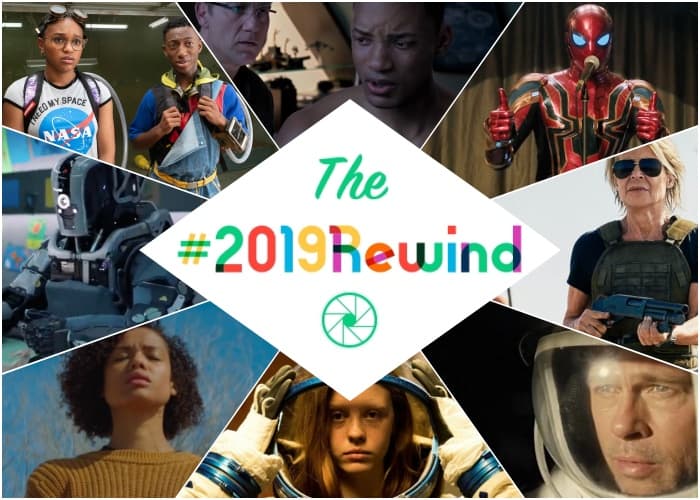
5. Alita: Battle Angel
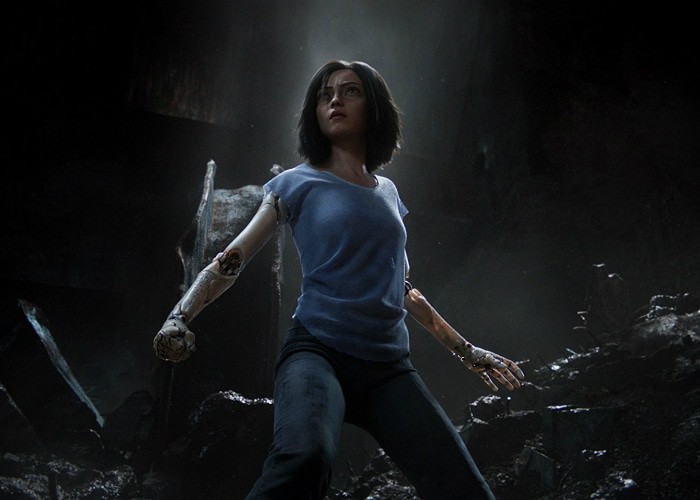
More than 15 years in the making, James Cameron‘s pet project, which wound up being helmed by Robert Rodriguez, might have been a perfect alternative to all the underwhelming sequels had it been held for the summer. Instead, US audiences mostly ignored the manga adaption when it released inexplicably on Valentine’s Day. There’s no denying Alita: Battle Angel has issues, especially script-wise; Cameron productions often do. But as far as spectacle tailor-made for the theatrical experience, there hasn’t been much better this decade, let alone this year. And yes, I’m talking 3D-worthy, the most impressive since Cameron’s own Avatar 10 years ago.
The worldbuilding is visually (if not logically) magnificent. The action is stupendously well-directed. And at its center, behind some occasionally questionable execution from the story and effects teams, Rosa Salazar gives a phenomenal captured performance that’s energetic and endearing as the titular cyborg finding her way through a 26th-century dystopia full of hunter-warriors, literal overlords, and a thrilling sport called Motorball. Thanks to foreign markets, Alita is one of the top twenty highest-grossing movies of 2019 worldwide, despite disappointing domestically, so hopefully, the teased sequel will still happen.
4. Atlantics

One of this year’s best foreign-language releases and best feature debuts belongs to the Senegalese-French actress/filmmaker Mati Diop. Atlantics is also the latest great arthouse ghost story that isn’t a horror movie, reminding me of Personal Shopper from a few years ago. This one could sound like a high-concept Hollywood movie if described simply: a young woman is supposed to marry a wealthy man but is in love with someone else. The secret lover decides to leave, taking off by boat. He dies at sea but then begins haunting the newlyweds, causing their bed to spontaneously combust on their wedding night. The only way she can now be physical with her true love is if he possesses someone else. The remake would be sold as being like the 1990 hit Ghost meets Titanic (sorry…), but Atlantics is more than just a supernatural tragic love story.
This movie touches on some world issues, namely the exploitation of workers in urbanizing centers and the migration/refugee crisis. The lover who takes off and dies at sea is part of a group who’ve been building a gigantic futuristic tower (since this building doesn’t actually exist, its presence gives the film a slight sci-fi quality) and have been stiffed on their pay for many months without expectation for being ever eventually compensated. Their travel by sea towards Europe and their grim fate is similar to so many who attempt to cross the Mediterranean in an attempt at better lives, whether they’re fleeing war-torn countries or pursuing proper work conditions and wages. I was far more interested in the numerous spirits of these people who were done wrong than the central plot between one woman and her romantic drama, but maybe some audiences drawn in by that are then forced to confront the rest.
3. Ad Astra
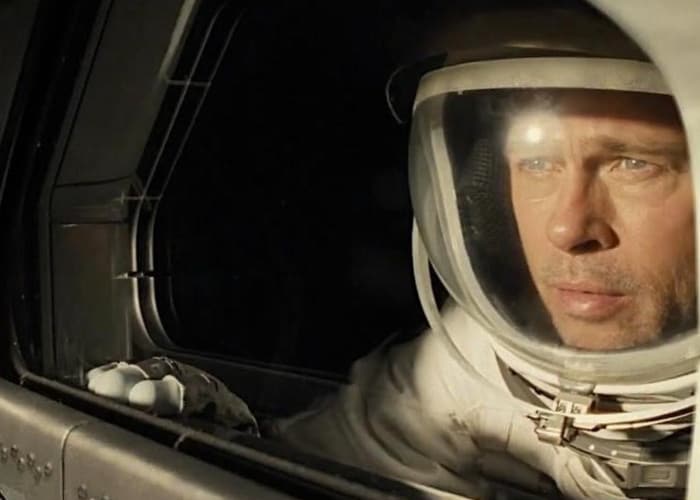
It’s hard to believe that it’s taken this long to get Joseph Conrad’s Heart of Darkness in space. And it’s not even an official adaptation, either. Pretty much any piece of literature or cinema set on a boat can translate to space travel. Actually, almost anything can be transferred to sci-fi. But anyway, here we have a man (Brad Pitt) on a mission to find not just any other man but his father (Tommy Lee Jones), who has possibly gone nuts at the far reaches of our solar system. It’s Pitt’s movie to really make or break since he’s often alone does a lot of silent acting while narrating in voiceover. Fortunately, he succeeds in that mission in the positive, too.
Ad Astra, which is James Gray‘s second film a row to be inspired by Conrad’s novella (after The Lost City of Z), doesn’t have a lot of easily iconic stops in the journey the way Apocalypse Now does, and it features very few memorable bits of dialogue unless we count Natasha Lyonne‘s welcome greeting to Mars in the way only Natasha Lyonne can deliver. There are specific visuals, though, including practical special effects shots and production design (the commercialization of the Moon is too on point) and holy crap that killer baboon, that have been burned into my mind since the experience of watching this film on the biggest screen I could find.
2. The Kid Who Would Be King
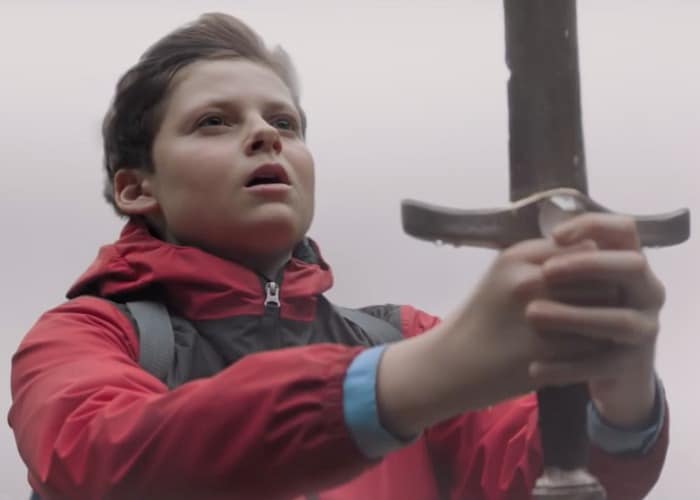
Many filmmakers of this decade have attempted to replicate the “Amblinesque” wonder and adventure of 1980s movies such as E.T. the Extra-Terrestrial and The Goonies, but only Joe Cornish has gotten the spirit of such throwbacks right while also offering his own unique and modern voice to the formula. Finally following up on his spectacular directorial debut, Attack the Block, the writer-director delivered another delight in his similarly inspired (and, sadly, similarly ignored) sophomore effort. Exchanging aliens for medieval fantasy, The Kid Who Would Be King again follows a bunch of kids stopping a type of invasion. It may be an acknowledged derivative mashup of Cornish’s love for Arthurian legend and Steven Spielberg movies, but it’s a joy in its own right.
And it does have a very contemporary story in spite of its interest in ancient elements like Excalibur and the Knights of the Round Table. The movie’s preteen hero (Louis Ashbourne Serkis) must team up with a young incarnation of Merlin (a hilarious Angus Imrie) and go on a quest to defeat Morgana (a fabulously wicked Rebecca Ferguson), but it’s all done in the present as they have to stop the evil sorceress from completely enveloping England in darkness. Brexit obviously came to mind for many viewers. And as tends to be the case, the children are our future and as such are the ones who’ll have to fix or fend off the problems made by their elders, perhaps with a look to the past mashed up with a new perspective. Every kid should be watching this movie.
1. Aniara
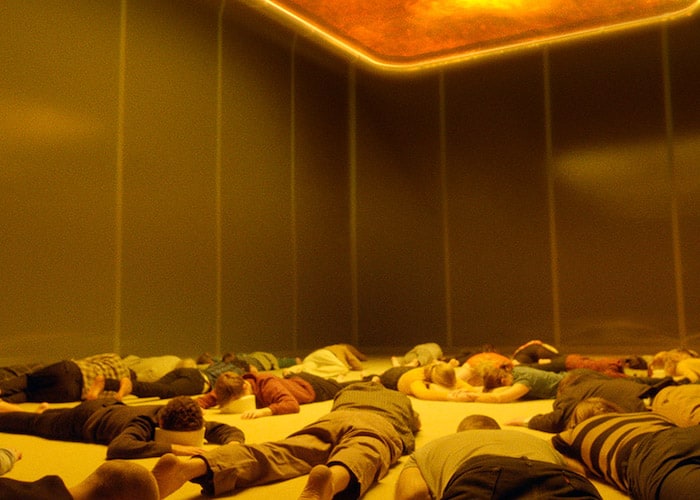
While some foreign countries are making waves with big science fiction blockbusters that look expensive and are sufficiently engrossing, Sweden has come through with something more intriguing yet still awe-inspiring. Pella Kågerman and Hugo Lilja‘s Aniara is not heady sci-fi, just clever and contemplative, ultimately ironic even. Based on Harry Martinson’s epic existential sci-fi poem, itself the pride of Sweden, the film follows a colonial transport ship that loses power and goes off course, drifting through space possibly forever. It’s like a better, more populous Passengers. Actually, forget I brought up that movie. Essentially, it’s Gilligan’s Island with less goofiness, more despair. Also, orgies.
Emelie Jonsson is fabulous in the lead, playing all the stages of adjustment to a crisis as an employee of the ship who operates a form of VR escapist attraction for its passengers until even that resource has been depleted. While never as deep nor lyrical nor scientifically motivated as the source material and not even as curiously or brutally bleak as the other title on this list about a one-way interstellar “sarcophagus,” Aniara is a smorgasbord of a film, spanning many eras in its depiction of life on an aimless ark. And kudos to its LGBT representation being so normalized and not relevant to the plot. Between this and its co-production of 2011’s Melancholia, Sweden might just be the best place to find profound sci-fi disaster movies.
Related Topics: 2019 Rewind, Fantasy, Science Fiction
